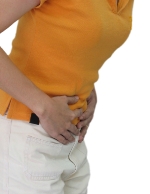IBS Foods To Eat

If you suffer from Irritable Bowel Syndrome (IBS), it can be hard to know which foods are safe to eat without the risk of further discomfort. This does not always have to be the case though, as IBS can actually be controlled through your diet. Around twelve to fifteen per cent of Americans are believed to suffer from IBS, so it is definitely not a rare condition.
Many IBS sufferers are told to certain foods, such as bran or raw vegetables, but in reality, this kind of advice is somewhat out-dated, and can actually make symptoms of IBS much worse. Instead, sufferers are probably better to follow a generic “IBS diet.” Unlike some other medical conditions, the symptoms of IBS are not particularly individualized, and most sufferers will experience the same kinds of symptoms.
Having said that, most sufferers will find that one or two foods will trigger a painful and debilitating attack of IBS, but some foods will have no impact at all. The obvious thing to do is to avoid the foods that provoke attacks, and cut them out of your diet for good. It is not always as easy as this though, as some foods will provoke an attack one day, but can be eaten another time without any adverse reactions. With this in mind, how can you plan your meals if you cannot be sure that a certain kind of food will not trigger an attack (even on a one-off basis)?
This is where the “IBS diet” comes into its own. There are guidelines on the types of foods to avoid based on the effect that some food categories have on the GI tract. More often than not, it will not be just the one type of food that causes problems, but foods within a certain category. Common culprits include foods that contain lots of fat, insoluble fiber, caffeinated drinks, carbonated water and alcoholic drinks. All of these are likely to irritate the muscles in the colon area, which then results in constipation, diarrhea, painful abdominal bloating, indigestion and abdominal pain. Of course, these will not trigger an attack in every sufferer, and many people will be able to eat and drink them with no problems.
As IBS has no known cure, sufferers have to learn to live with the condition for the rest of their lives. For many people, this will involve denying themselves the foods that they love in case it leads to another attack, and never eating out in fancy restaurants because they fear that the food is too rich for them. If you are one of the many IBS sufferers who do this, you do not need to carry on denying yourself.
Many foods trigger an attack when they are eaten in large quantities. This means that it is still fine to eat them, as long as it is in small proportions. Of course, some sufferers will still find that a certain food provokes an attack, in which case it should be removed from the diet straight away. Most of the main culprits are foods that are quite unhealthy anyway, and removing them from your diet, or reducing the quantities that you eat will only be healthier in the long term.
It is not just the foods that you eat that can affect IBS – the way that you eat can also have a big impact. Taking the time to chew food properly seems pretty obvious, but many of us do not do this. We then end up swallowing air, which can cause problems. Eating small meals on a frequent basis will help, as attacks are more likely to happen on an empty stomach. Drink water throughout the day to flush out your system, but avoid drinking too much during meals as this can affect digestion of the food. Chop up vegetables, fruit, nuts, dried fruit and raisins to aid digestion. Mashing beans, peas and berries will have the same effect.
If all else fails, go back to basics and eat simple foods that are less likely to upset your digestive system. This can include fruit, vegetables and water. Peppermint tea is good for encouraging muscle relaxation and can also help to ease pain. It can also settle your stomach.
Living with IBS can be a complete nightmare for sufferers, but it does not have to be this way. Once you know the list of common triggers, and understand the ways in which these types of food have a negative effect on the digestive system, you will be in a better position to cope with your IBS. Unfortunately, there is no cure for IBS at the moment, so sufferers are stuck with the condition for life once they have been diagnosed, but understanding more about the condition and what could be triggering your attacks can make life a little bit easier.
